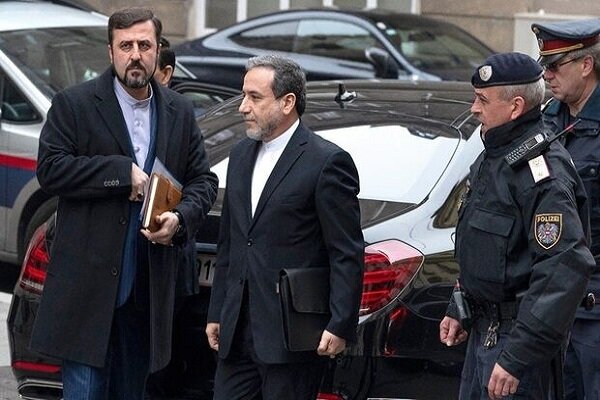
TEHRAN— On June 18, the people of Iran will freely and democratically elect a new president. As President Rouhani’s term expires, there are various important issues to be settled. There are several vital questions to be raised. This administration began a difficult round of negotiations with the P4+1 to revive the nuclear deal. Would the next administration inherit the negotiations? Will Iran’s policies change? What did Rouhani mean when he said he would lift the sanctions within the last 100 days of his presidency?
The Vienna negotiations entered their third week on Tuesday, April 27. So far as we know, the negotiations have had some progress, with Seyed Abbas Araghchi, Iran’s top negotiator, describing the last meeting of the Joint Commission of the Joint Comprehensive Plan of Actions (JCPOA) “on the right track.” One thing is certain. There is a 3 vs. 3 battle going on. Iran, China and Russia unanimously and unequivocally called for the immediate lifting of the sanctions. Iran is patiently waiting for E3 (Germany, France, and the UK) to call on the U.S. to lift all the sanctions.
But that is unlikely to happen, as E3 has shown in the past that they have no free will of their own. Time and again, they have followed what the U.S. has said. The Biden administration is said to be looking into possibilities of easing banking, oil and finance sanctions on Iran. Immediate removal of all sanctions in a verifiable way is the only demand Iran has. The JCPOA experience has proved to the Islamic Republic that when sanctions are lifted on paper, nothing practical could be done. After the JCPOA, Iran kept struggling with issues such as transferring its money overseas, causing the economy to limp, but not cripple.
The Biden administration must understand that they barely have any time left. With the Leader of the Islamic Revolution asking all sides not to engage in “erosive and prolonged” negotiations, Iran has expedited the process. Yet, the United States keeps saying that they do not want to rush into a deal.
“We expect this to be -- these conversations to be difficult. We expect this to be a long process. And we're very much at just the beginning period,” Jen Psaki, the White House spokesperson, said on April 8.
The U.S. seems to be insisting that the negotiations would take longer than expected, and it may even go on after Iran’s upcoming presidential election on June 18. History suggests that the U.S. is likely to wait and see what happens in the elections, as they reportedly did in 2013, when John Kerry halted the negotiations.
President Rouhani has stated that within the last 100 days of his presidency he would be able to lift the sanctions and relieve the economy. Does this mean that the negotiations would likely reach a conclusion in this administration?
The answer is probably not. There are many details that need to be ironed out. For example, the sanctions on the Islamic Revolutionary Guard Corps (IRGC), along with the sanctions on the office of Ayatollah Khamenei, Leader of the Islamic Revolution, need to be resolved. According to the Wall Street Journal, there is a big difference of opinion about the removal of sanctions on these two entities.
It cannot be denied that the Natanz sabotage act, done by Israel, has accelerated the negotiations. After three weeks, the six delegations came from no common thinking to “the right track”, as described by Iran’s top negotiator Araghchi.
However, the potential presidential candidates have announced their plans for the continuation of negotiations, if elected.
Rostam Ghasemi, former Minister of Petroleum during Mahmoud Ahmadinejad’s administration and a presidential candidate, stated that sanctions removal is his first priority, and he will take the control of the negotiations himself if elected.
Making the sanctions ineffective is his next priority. “If I want to negotiate, I will strengthen the country’s economy,” Ghasemi said.
“We should change the ‘imploring diplomacy’ to the diplomacy of power,” he said on his possible government’s diplomacy.
He added that the United States “must return to the JCPOA without any preconditions.”
Saeed Jalili, another potential and highly anticipated presidential candidate, is expected to continue the negotiations if elected. Based on his past experience as the secretary general of Iran’s Supreme National Security Council, and him being Iran’s chief nuclear negotiator between 2010 and 2013, it is likely that he would continue the negotiations.
Saeed Mohammad, the former director of Khatam-al Anbiya Construction Headquarters and a mysterious figure to many Iranians, has officially announced that he is running for president.
He has also declared that he is open to negotiations, on the condition that Iran “strengthens itself internally.”
TAGS

No comments:
Post a Comment